According to the American Heart Association, heart disease is the number one cause of death in the United States. It’s a great time to examine our overall health and evaluate if any changes need to be made. We can start with diet, exercise and even supplements!
What is Heart Disease?
The term “heart disease” refers to several types of heart conditions. The most common type of heart disease in the United States is coronary artery disease (CAD), which affects the blood flow to the heart.
High blood pressure, high blood cholesterol, and smoking are critical risk factors for heart disease. About half of people in the United States have at least one of these three lifestyle risk factors. Having a family history of heart disease is a risk factor as well. Several other medical conditions and lifestyle choices can also put people at a higher risk for heart disease:
- Having Prediabetes or Diabetes
- Being overweight or obese
- Unhealthy diet
- Physical inactivity
- Excessive alcohol use
Supplements for Heart Health
While diet and exercise are proven to help control heart disease, sometimes your body needs a little extra TLC! This is why adding a supplement to your regimen can improve health outcomes even more. While medication is also helpful in reducing symptoms of heart disease, we recommend starting with lifestyle changes first. Most importantly, remember to talk to your doctor before starting a new supplement routine.
Our 10 Top supplements for heart health are:
Multivitamin
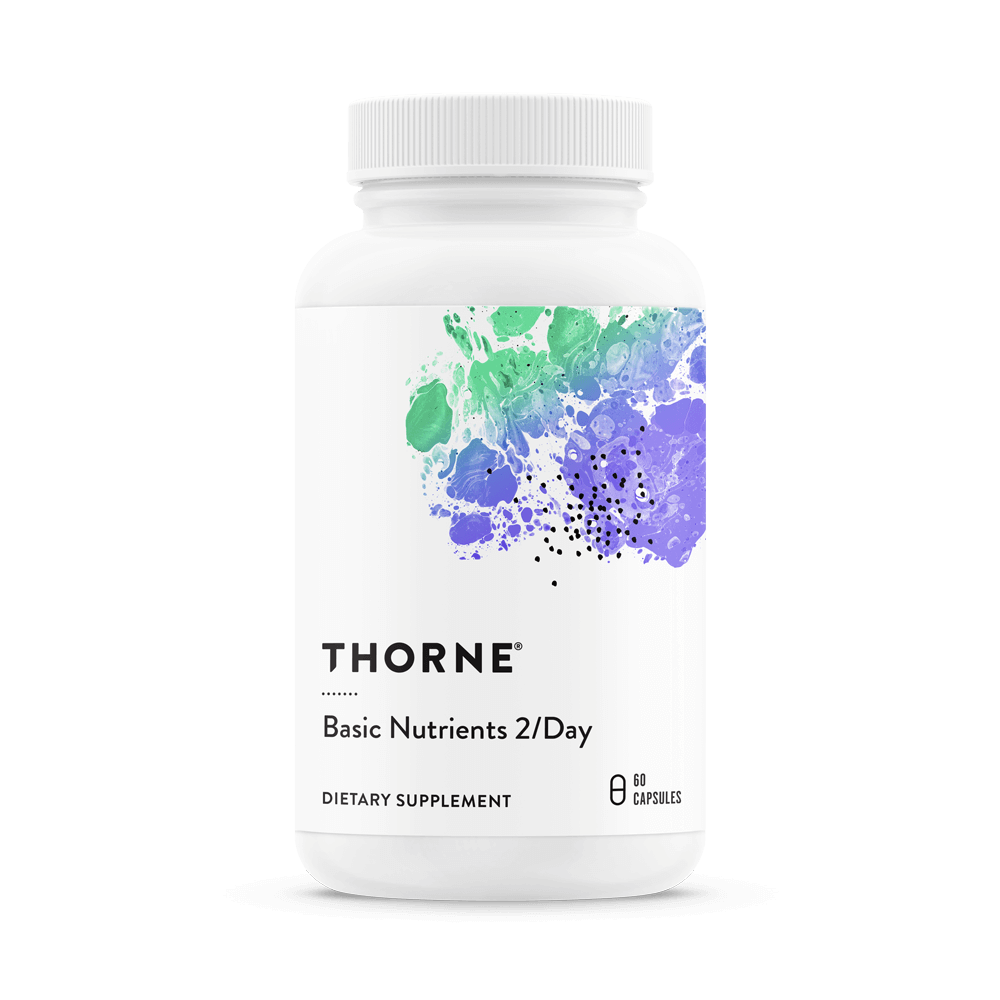
Picking a multivitamin can be tough due to so many choices. We encourage a multivitamin daily based on your age, the stage of life you’re in, and if you’re looking to lose weight. A multivitamin fills the nutritional gaps when they cannot get it all from food.
Niacin
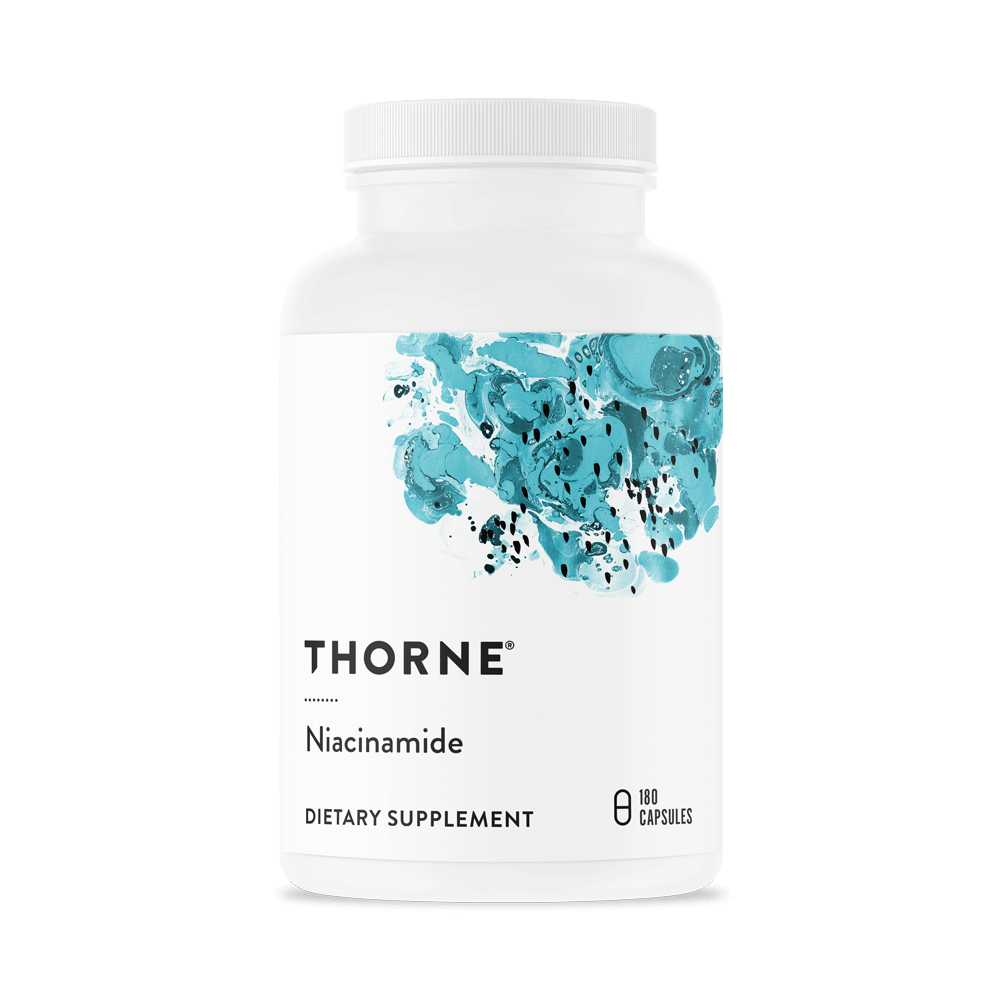
It helps to increase the levels of HDL (good) cholesterol and reduce triglycerides in the blood. Dosages are as followed: 14mg women and 16mg men. Remember, although we can get niacin from sources like red meat, pork, poultry, fish, brown rice, fortified cereals and breads, nuts, seeds, legumes and bananas, taking a supplement can bridge the gap.
CoQ10
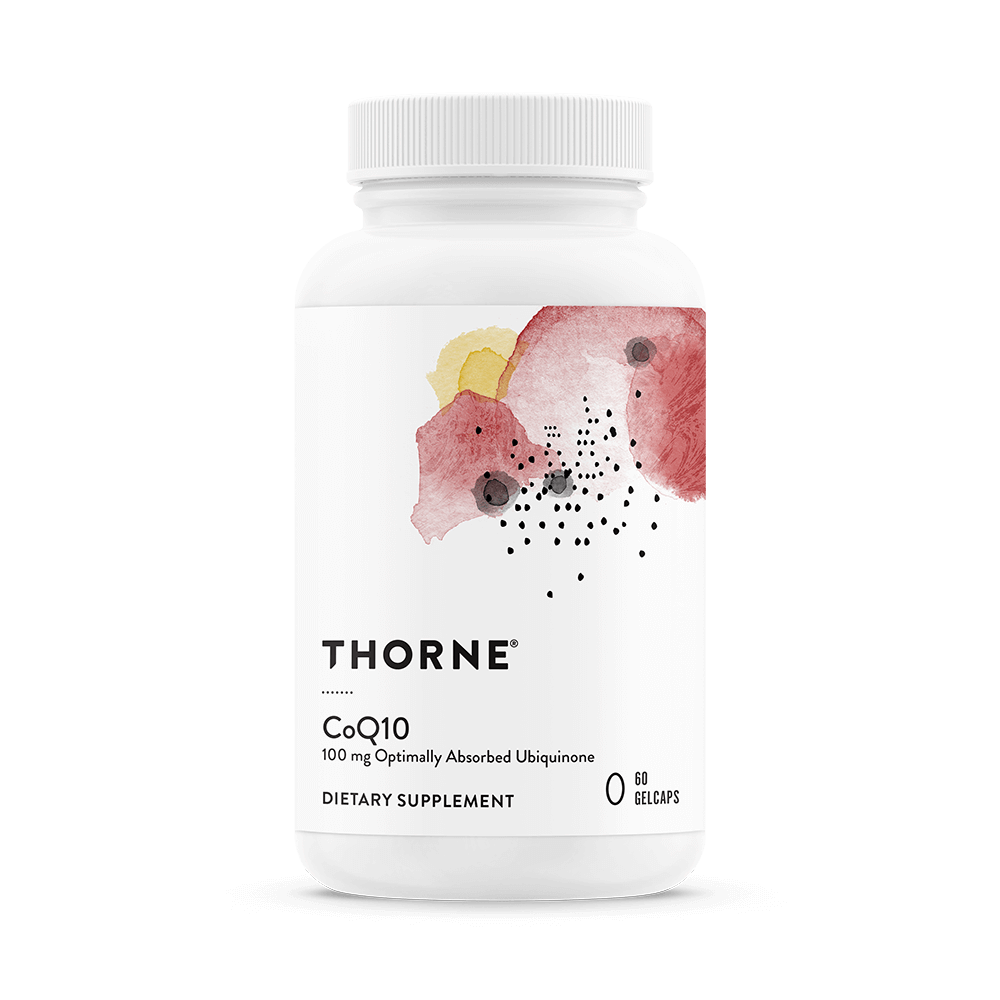
This helps reduce LDL (bad) cholesterol as well as reduces muscle pain associated with taking a statin. Dosage is 90-200 mg/day. Sources include oily fish (such as salmon and tuna), organ meats (such as liver), and whole grains. If oily fish or organ meats aren’t your thing, try this CoQ10 instead!
Red Rice Yeast
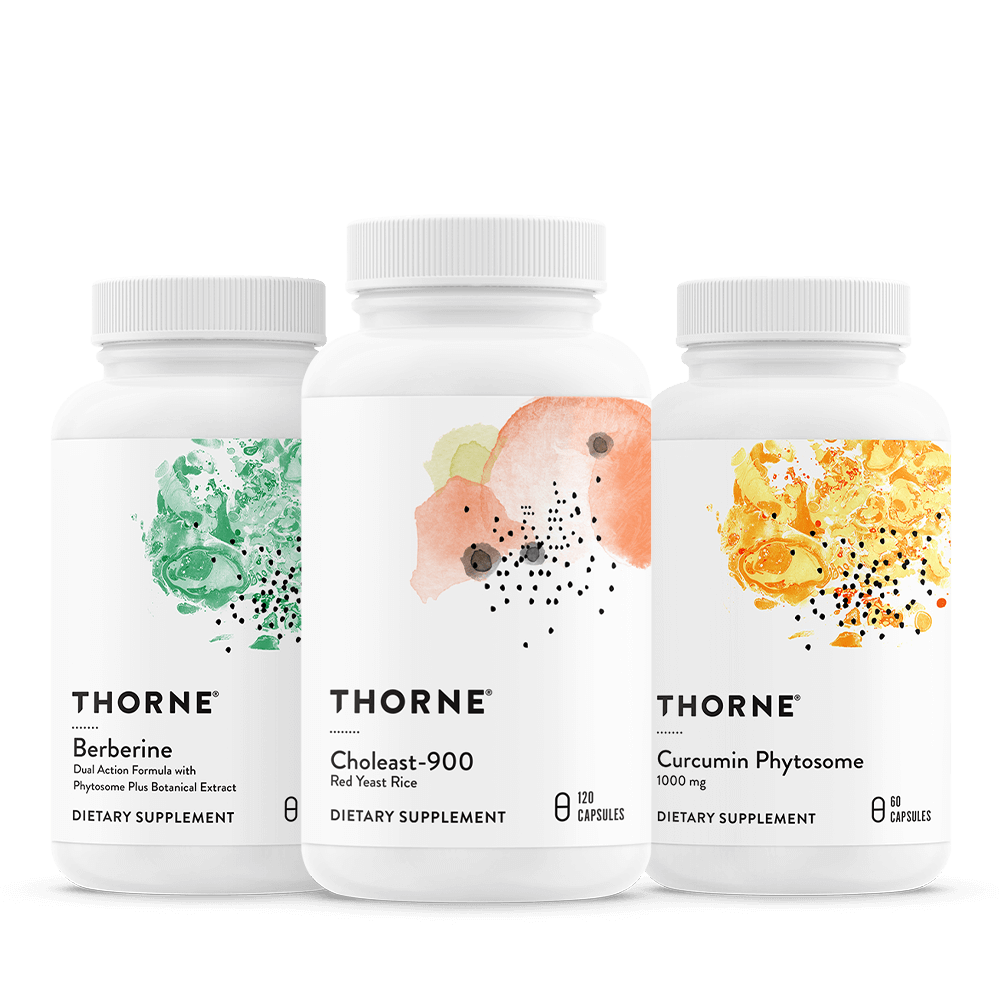
This can help lower total cholesterol levels; you should not take this supplement if you have liver or kidney disease or if you are pregnant/breastfeeding. 1200 mg is the daily dosage. Try this supplement that is also part of a bundle with curcumin listed below!
Probiotics
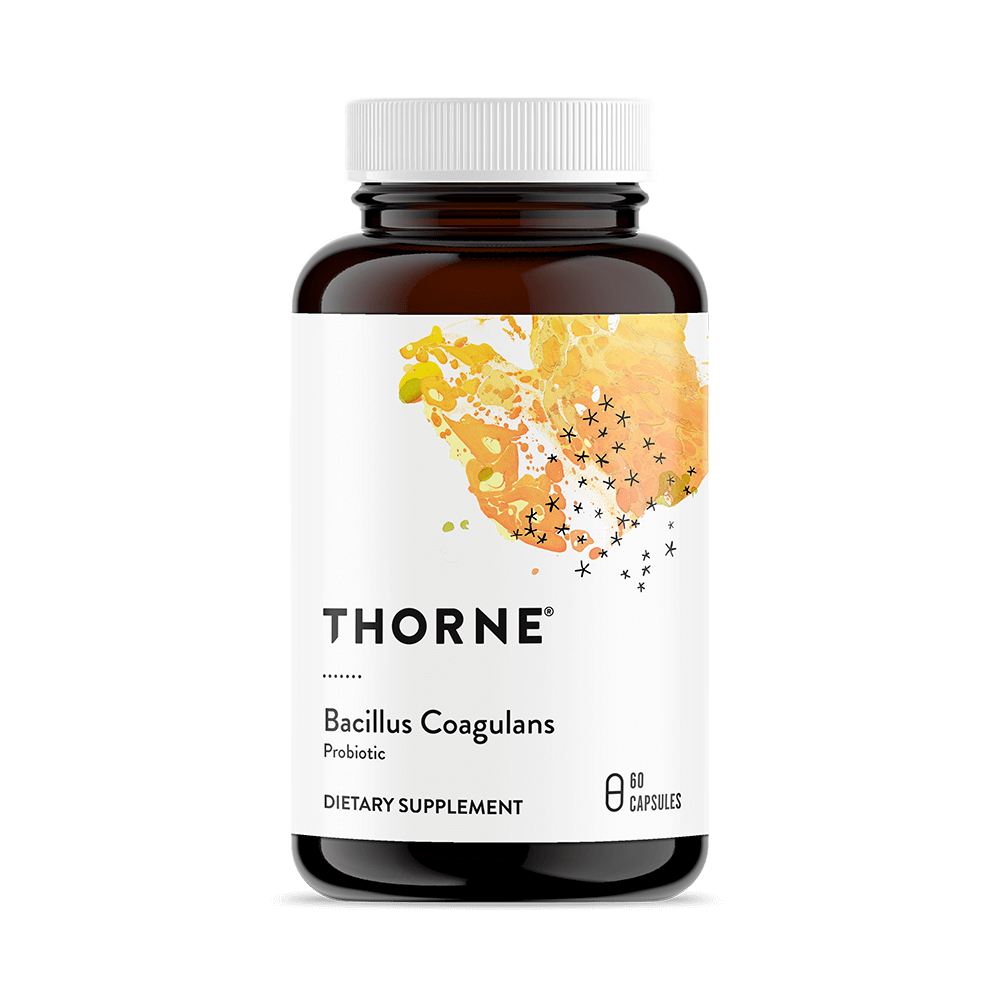
Probiotics help reduce blood triglycerides. We can get probiotics naturally from yogurts, certain cheeses, and fermented foods kombucha, kimchi, pickles, sauerkraut, and miso. While these are all good options, be wary of the salt content found in some of these pickled foods. We recommend this probiotic from Thorne.
Curcumin
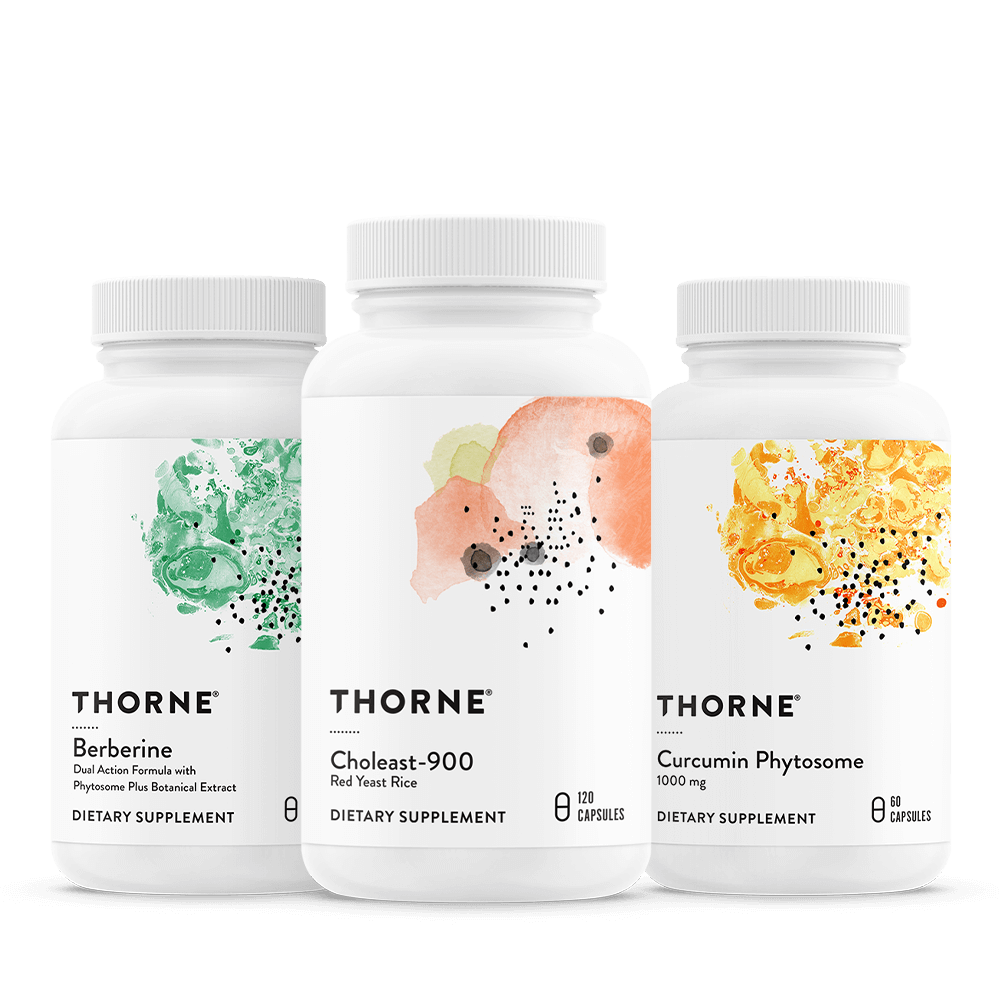
This reduces triglyceride levels and should be taken with a small amount of fat when consumed. Sources include turmeric, mango, ginger and curry powder. 8 mg daily is all you need for heart health, especially when taken with a little bit of fat. While some of these spices may be a little too fragrant for some, we recommend this supplement for you! (Bonus, it’s part of a bundle that includes red rice yeast listed above).
Fish Oil (omega 3)
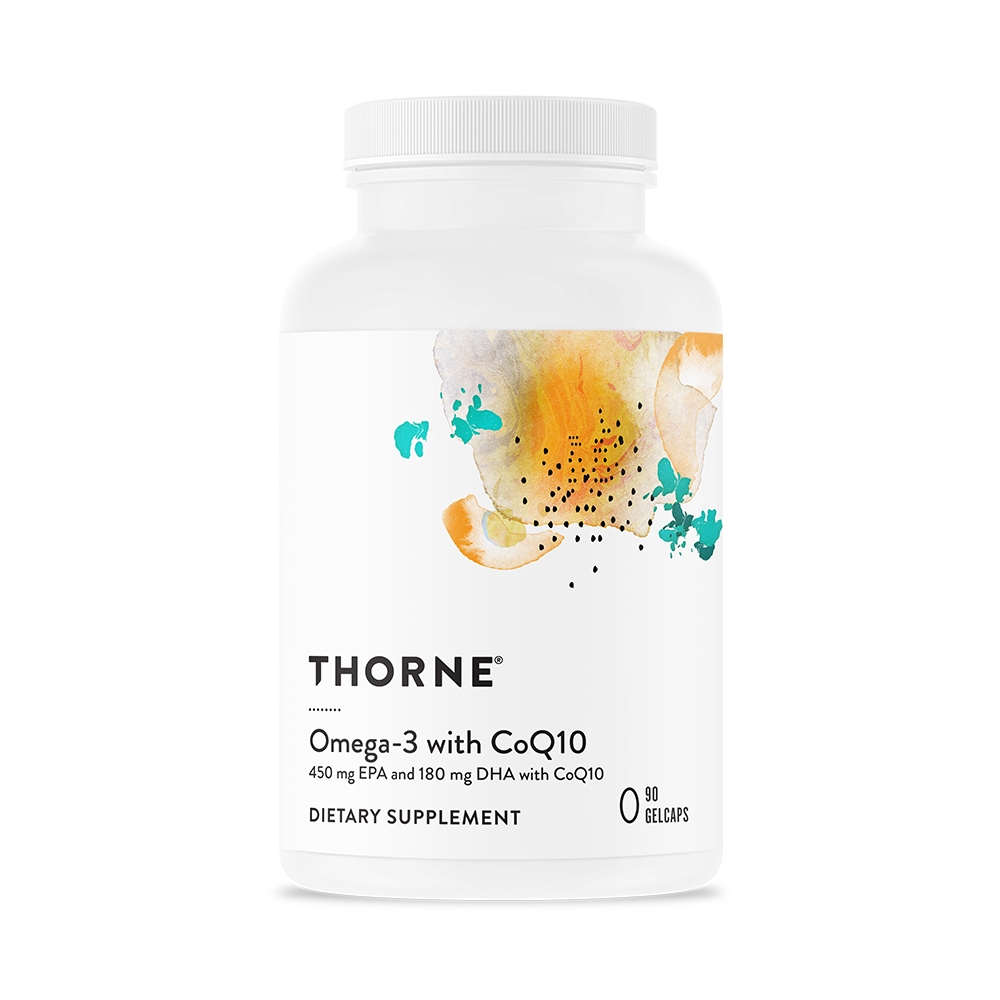
This inhibits the release of triglycerides from the liver, and stimulates the enzyme that clears triglycerides from the blood; also reduces systolic (top number) and diastolic (bottom number) blood pressure. Dosage is 300-400 mg/day. Sources include fatty fish (like salmon, herring, and mackerel), nuts and seeds (flaxseed, chia seeds, walnuts), and olive oil. Sometimes eating fatty fish like this everyday isn’t possible, so we recommend trying this omega 3 to get all of the good benefits!
Magnesium Citrate

This reduces systolic (top number) and diastolic (bottom number) blood pressure. Dosage is 500 mg/day. Found naturally from foods like nuts and seeds, nut butter, dark leafy greens, beans and legumes, whole grains and fortified cereals, fish, poultry, and beef. If you feel like you’re not eating enough of these foods, try this supplement! Just be mindful what time you take this supplement as it does have a laxative effect.
Beetroot

This supplement contains naturally high levels of nitrates, which your digestive system converts into nitric oxide and nitric oxide relaxes and widens blood vessels, therefore reducing blood pressure. Beetroot is very pigmented and eating too much can cause your excrements to be stained pink!
Garlic

Reduces systolic (top number) and diastolic (bottom number) blood pressure. It can be garlic cloves, minced garlic or garlic powder. Just an FYI, you may smell like garlic when taking this type of supplement or eating too much of it on your food!
If you want more information on how to eat and exercise for heart health, take a look at our other blog posts for more information!
Tips for Supplementation:
- Check that it’s right for you. Some supplements can interact with medications, so talk with your doctor before starting a new supplement. If you are taking other supplements already, you’ll also want to check to make sure you aren’t putting yourself at risk of toxicity.
- Look for USP verification. Supplements are not regulated by the FDA the same way that medications are. To ensure that the supplement you’re choosing contains exactly what its container says (and no contaminants), choose a supplement with a USP Verified seal on the bottle. To learn more about USP verification, read here.
There is much to learn and so many ways to improve cardiovascular health! At Anderson’s Nutrition, a Registered Dietitian can give you the education, support, and guidance you need to keep your heart in tip-top shape! We provide individualized nutrition counseling that guides you, leading to improved health outcomes. Contact us today today to learn more!
Disclosure:
Some of our pages contain affiliate links that Anderson’s Nutrition may receive a commission from, at no extra cost to you. We only promote food and wellness stocking stuffers that we have used & verified, finding helpful for our clients and friends. As an Amazon Associate, we earn from qualifying purchases. Anderson’s Nutrition is a participant in the Amazon Services LLC Associates Program, an affiliate advertising program designed to provide a means for sites to earn advertising fees by advertising and linking to Amazon.com.




